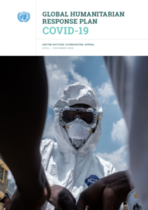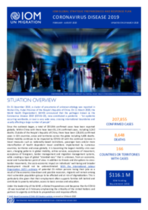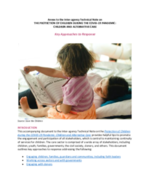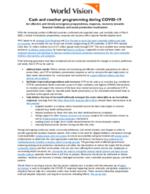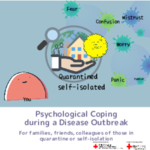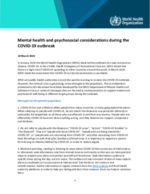IASC Global Humanitarian Response Plan for COVID-19
This document from the United Nations Office for the Coordination of Humanitarian Affairs (OCHA) outlines the Global Humanitarian Response Plan for COVID-19, a joint effort by members of the Inter-Agency Standing Committee (IASC), including UN, other international organizations and NGOs with a humanitarian mandate, to analyse and respond to the direct public health and indirect immediate humanitarian consequences of the pandemic, particularly on people in countries already facing other crises.

